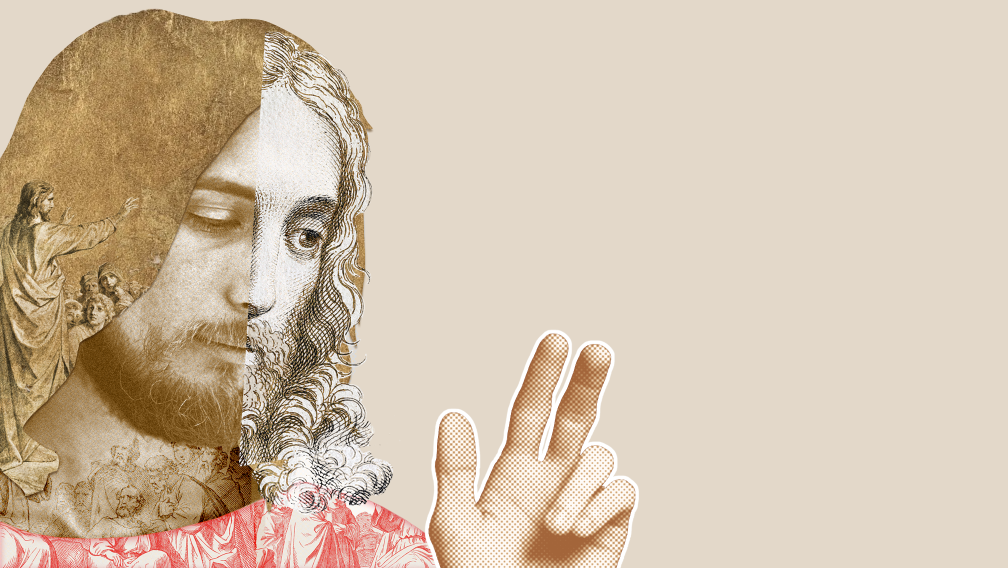Blessings in Disguise

“Then [Jesus] looked up at his disciples and said: “Blessed are you who are poor, for yours is the kingdom of God. Blessed are you who are hungry now, for you will be filled. Blessed are you who weep now, for you will laugh.” — Luke 6:20–21
In our world today, we might think to be blessed is to be rich, satiated, happy, and praised. But in the Beatitudes, the well-known “Blessed are the . . .” phrases at the heart of our Scripture this week, Jesus subverts our expectations and invites us to see blessing a different way, one that is not dependent on external circumstances.
The blessings Jesus speaks of — not only having our needs met but also the gift of joy — come through our relationships with God and with one another. The Beatitudes are not prescriptive; they are descriptive. They do not express demands; they suggest characteristics that allow us to live out our calling to walk humbly with God, alongside one another.
[The Beatitudes] demand we pay attention to what we value and where our sense of contentment, or blessing, comes from.”
This new way of living is countercultural, and it reminds us that our faith depends on us seeing things differently. Like Jesus, we face the challenges, injustices, and realities of today by making ourselves vulnerable, by resisting power no matter how tempting, and by standing in solidarity with those deemed unworthy in the eyes of the world.
Living this way in the midst of fear, anxiety, and violence costs us our perceived sense of safety and our standing in society. As Jesus told his disciples, “If any want to become my followers, let them deny themselves and take up their cross and follow me” (Matthew 16:24). To love without fear, we must act against our instincts for self-preservation. Those instincts make sense: For many of us, suffering has been a familiar companion on the journey. But Jesus shows us we do not have to hide our wounds or be ashamed of our problems, for God meets us in our weakness.
These Beatitudes are hard. They demand we pay attention to what we value and where our sense of contentment, or blessing, comes from. They point to this difficult but liberating truth: If our happiness comes at the expense of our neighbors, then chances are we aren’t really following Jesus.
Read all of Sunday’s Scriptures
Step Into the Story
Here are some ways to think more deeply about the Beautitudes:
Poetry
In “Beannacht / Blessing,” Irish priest and poet John O’Donohue writes, “And so may a slow wind work these words of love around you, an invisible cloak to mind your life.”
Visual Art
South African artist Nathaniel Mokgosi portrays Jesus teaching the Beatitudes in this striking and graphic linocut, “Come, ye blessed . . .” Notice the marks on Jesus’s hands and feet, for us a reminder of the suffering he will soon endure.
Music
The Sakhnini Brothers, Arab Christians from Nazareth, sing the Beatitudes in Arabic, with oud and keyboard accompaniment.
Mother Yein is priest and associate director, Sacramental Life and Membership, at Trinity Church.





